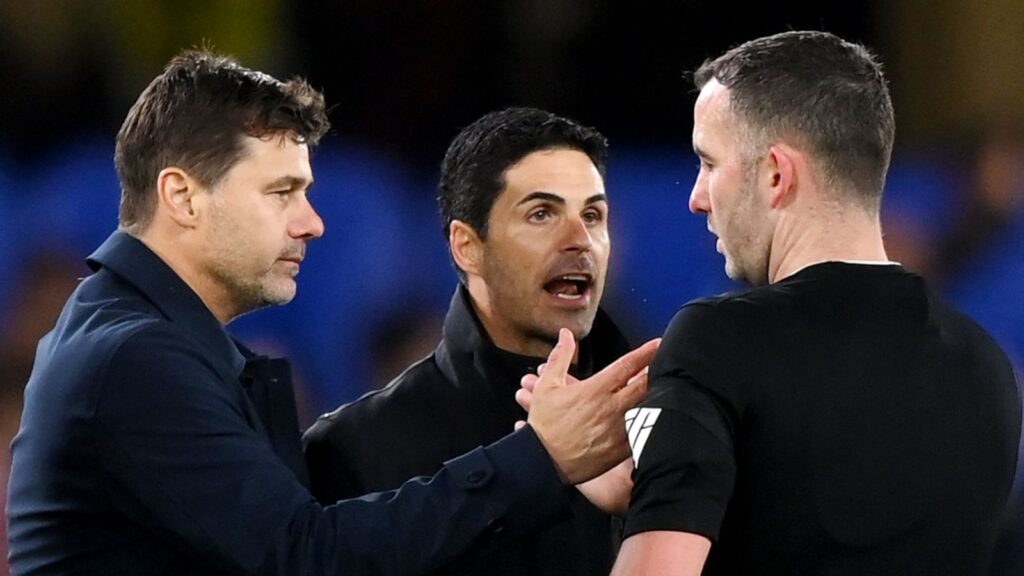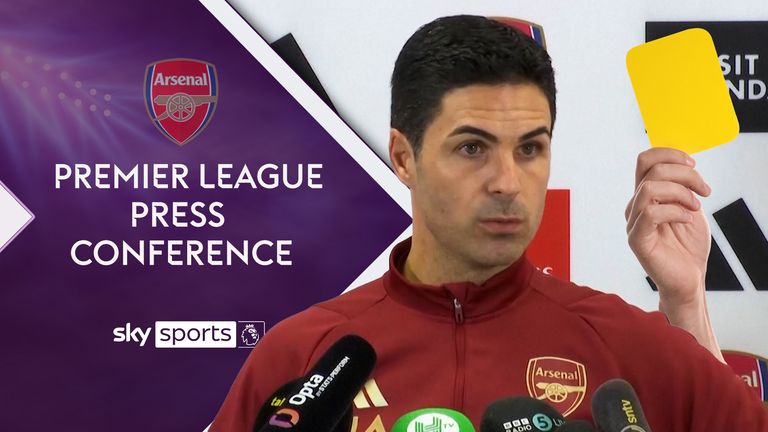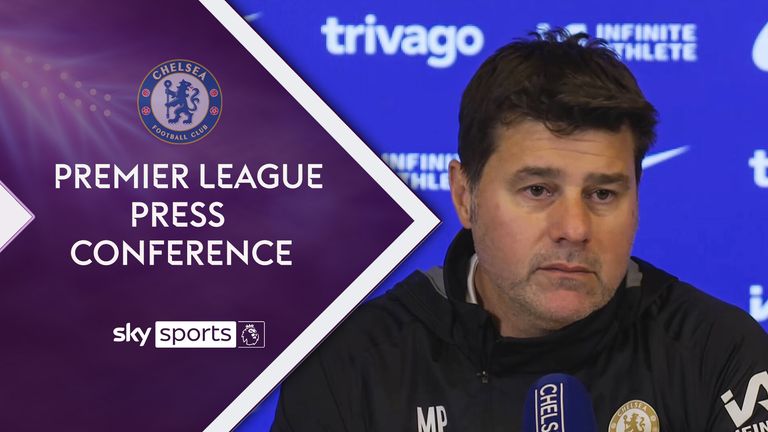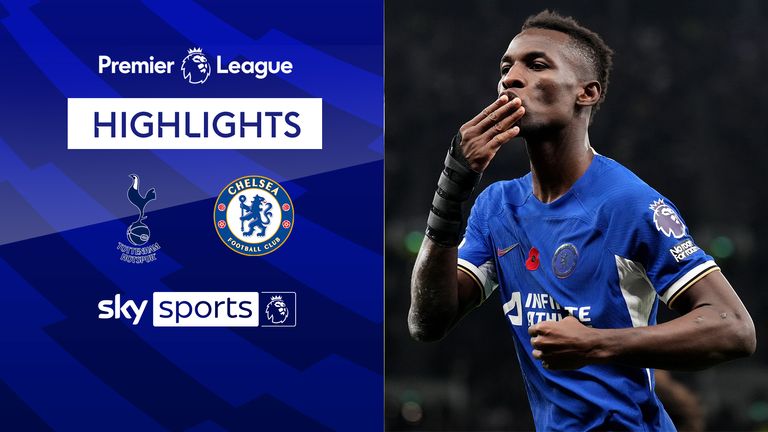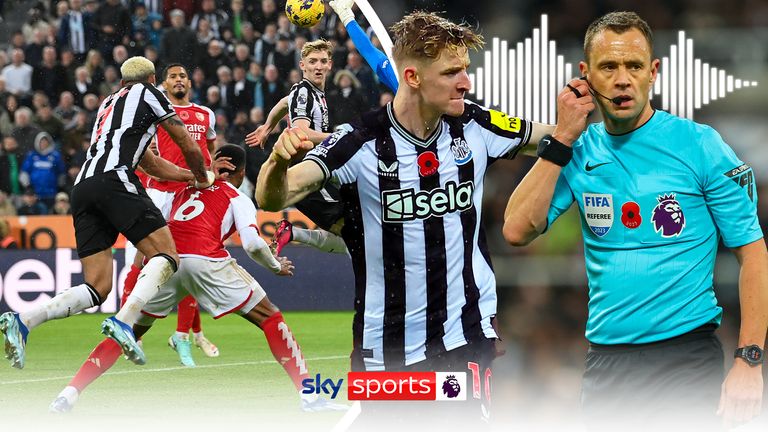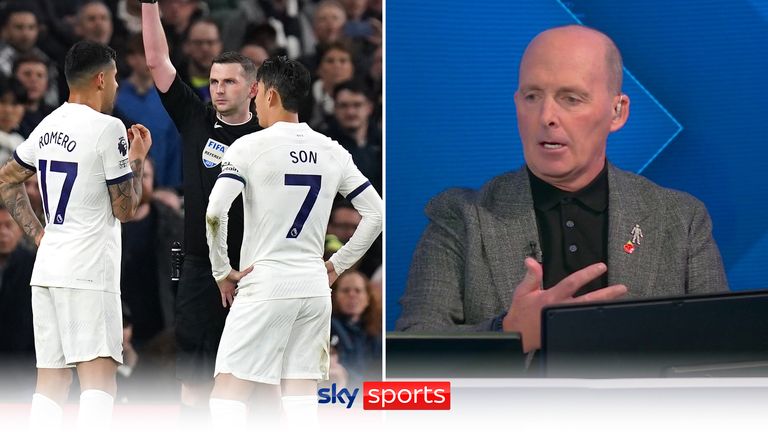Mikel Arteta revealed that many Premier League managers had been in contact with him after the Arsenal boss was charged by the Football Association for comments after the Gunners’ 1-0 defeat at Newcastle earlier this month.
Arteta branded the officials’ decision not to overturn Anthony Gordon’s goal “an absolute disgrace” and waits to see the extent of his punishment.
And Arteta highlighted that he and his manager colleagues were “all in this together” when it came to making improvements regarding officiating in the Premier League.
“I have been in contact with many of them, I know most of them for many years and we are all in this together,” Arteta said.
“We compete with each other but we understand our roles and understand our responsibility and we want to fulfil that to our best.
“So everything we do has to be properly thought with good process in place and make sure we contribute to make it better.
“We do meetings (with the officials) but sometimes individually. A lot of things happen.”
Arsenal faced criticism after a public statement supporting Arteta’s comments was released earlier this month.
But the Gunners manager defended his views, putting his reaction down to emotions after it was suggested his comments would set the wrong example as to how to treat referees.
“I have given hundreds of opinions but you want to isolate one moment when I talked about something I believed and used it in a different way, I don’t think that’s fair”, Arteta said to a reporter.
“We live the game with emotion. I react when a player scores a goal. I react when a player gives the ball away. We are constantly reacting – this is the game.
“We live a game which is passionate and you play to win and so this has to happen and we have to react.
“Let’s sit down here like a theatre and be on mute and see if this league and game will be interesting, it won’t. And that’s what makes it special.”
Poch wants managers ‘involved in decisions’ around referee reform
Mauricio Pochettino believes Premier League managers should be invited to play a more active role in helping shape refereeing guidelines.
Chelsea have been involved in a number of controversial fixtures this season, most notably the frenetic 4-1 win away at Tottenham earlier in November in which Spurs had two players sent off, five goals were disallowed and VAR made nine interventions across a match that lasted over 110 minutes.
Pochettino has previously complained that the league’s request to meet with coaches in the week before the beginning of the season to discuss changes allowed little room for constructive input from managers and their clubs.
The current campaign has seen a barrage of complaints directed at on-field and VAR officials, with referees coming under almost unprecedented scrutiny following a string of errors, particularly relating to the influence of the video referee on the decision-making process.
“We all have full respect for the referees, we understand perfectly that their job is really tough,” said Pochettino, whose team face Newcastle at St James’s Park on Saturday.
“But the problem is you get frustrated sometimes during the game because of the VAR. The referee is not responsible sometimes. You cannot complain to the VAR. That is a problem.
“I’m going to try and control more my emotions. I think all the coaches respect the referees because they’re in a really difficult situation.
“I think sometimes we are frustrated. I think coaches need to be more involved in the decisions, and to work together during the season.
“It is not (ideal) to arrive the week before the start of the Premier League season and say, ‘OK, the new rules are this. What do you think?’. Nothing, because you have already made the decision. Like the rule that there can only be one coach (in the technical area). Why?
“England was always different about the relationship with the referee. You can talk, you can (previously) have four people in the dugout. Which way do we want to evolve in the Premier League?
“England is different. Not only because you drive on the right (of the car), but because of the relationship in football. It is the gentleman’s game.”
Despite those frustrations, and the ongoing confusion surrounding the proper implementation of VAR and its interpretation of the game’s rules, Pochettino acknowledged that the emotional side of football is ultimately what props up the business side of the sport.
“I think people look at football and understand that it is a big business,” he said. “The sport is very honest, with rules. But around that it is a business that we cannot stop.
“If the sport doesn’t produce that emotion it is producing, it is difficult to talk about it in this way, to have the chance to have good salaries, to give also to society.
“Football provides people with happiness and that is the most important thing. We are all part of this business.”




